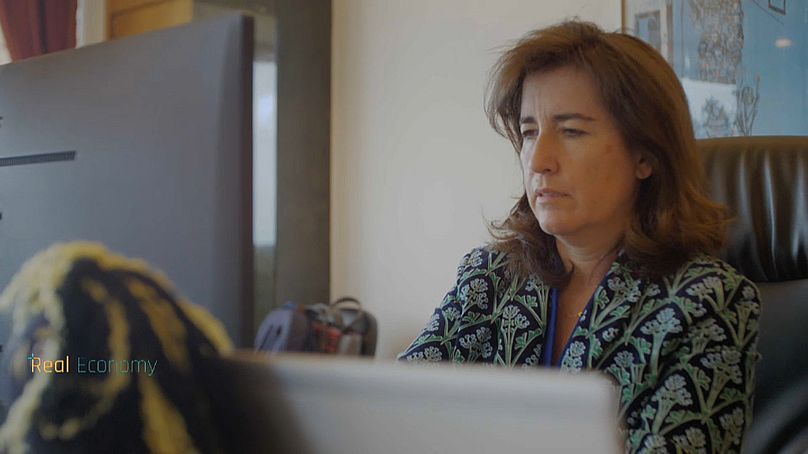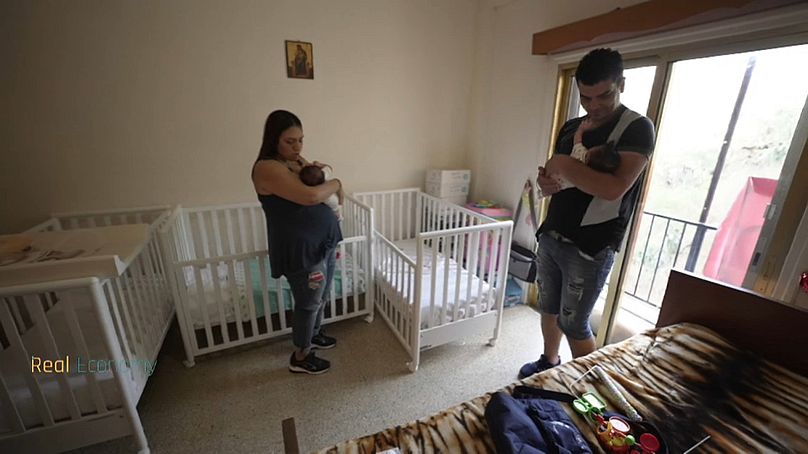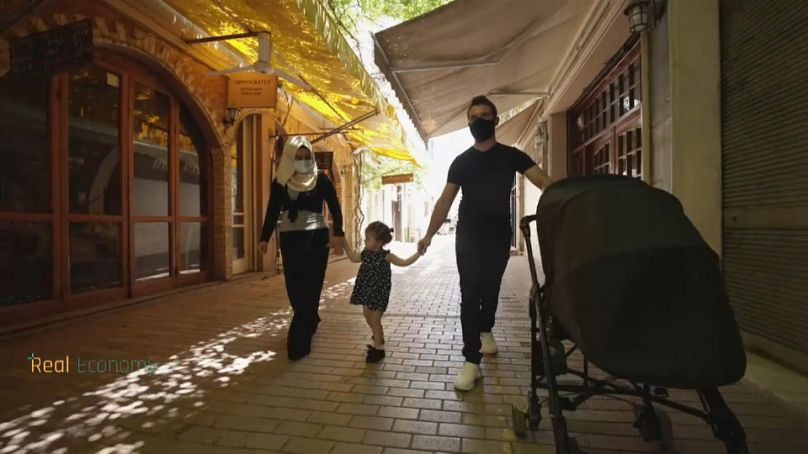Parents Heba and Adel and Koulla and Mario have things in common: Both couples live in Cyprus and both are struggling to provide for their children. But they have been helped by an EU-Cypriot co-funded project and more families like them could soon receive help from the European Child Guarantee.
Almost one in four children in Europe live in poverty according to pre-pandemic figures.
In 2019, it was estimated that 18 million children in Europe are at risk of poverty or social exclusion. When you compare these children to their better-off peers, they are also more likely to underperform at school, have difficulty finding a decent job and suffer from poor health as adults.
The global health crisis is making this worse.
The Secretary-General of Eurochild, Jana Hainsworth, says that countries across Europe are reporting "significant hardships" due to the pandemic. There has been a rise in the use of food banks and family homelessness has become an issue. She also adds that "the impact on children is quite dramatic". Many have lost their social networks and they have been hugely impacted by not being able to access school.
What is being done to change this?
The EU Commission's European Child Guarantee policy initiative aims to put an end to child poverty if governments sign up for it.
How will the European Child Guarantee work?
To break the poverty cycle, the European Child Guarantee asks EU governments to make sure every child at risk has:
- Free education, childcare, good-quality healthcare and decent housing. This also includes a healthy school meal a day and the possibility to take part in activities at school including sport - all for free.
The Guarantee puts into action the European Pillar of Social Rights which aims to lift at least five million children out of poverty by 2030.
Member countries are being asked to sign up to the Guarantee and create action plans on how they will implement it.
Jana Hainsworth tells us that the initiative is "very promising" and "really ambitious". However, she sees the biggest challenge as making sure "this does not remain a commitment on paper".
Ultimately, allowing children to access the basic services required for their development and well-being is the aim of the European Guarantee for Children.
Ana Mendes Godinho, the EU Minister for Employment, Solidarity, and Social Security, further describes it as a way to guarantee "an overall integrated approach" to "address the different needs of children in terms of housing, education, care and health".
According to her, this would ensure "that every member state has a national plan, with a concrete goal". "Only by doing this, we will guarantee equal opportunity to every child in Europe", she adds.
Cases of financial difficulties in Cyprus
Cyprus' growing economy has been hit hard by the health crisis and the road to eradicating poverty there is still long. According to the Cyprus Anti-Poverty Network, one in three children are concerned by this situation in the country.
Becoming a parent in this context and not having the basic essentials to give your baby is a desperate situation to be in. It's a situation that Panayiota Christou, a Social Worker for project Baby's Dowry knows well.
She takes us to the little village of Temvria, close to Nicosia to meet Mario, a soldier, and Kula, a former part-time gas station worker. Their fragile financial situation became precarious with the unexpected arrival of triplets.
They were struggling to find the money to buy the basic necessities for their children and that's where Baby's Dowry, an EU-funded project, came into play. It has provided them with essentials like prams, cribs and baths for the babies.
It's something that Kula describes as making their lives easier now and for the future because "thanks to the project, we can save some money and use it when the kids grow up."
The Baby's Dowry programme is financed by both Cyprus and the Fund for European Aid to the most Disadvantaged (FEAD). Panayiota tells us that the programme "aims to help families with children under the age of two who face material deprivation, risk of poverty and social exclusion".
"Child poverty remains hidden, secret, it is not obvious, so we should give more support to households to improve the living conditions of children" she adds.
The Baby's Dowry project is a step towards tackling a social problem that remains difficult to assess.
With a budget of 3.6 million euros, the Baby's Dowry project has helped around 2000 families, like Kula and Mario’s.
However, this family is a rather exceptional case among the beneficiaries of this project as many are single mothers and refugees.
Heba and Adel
One refugee family in Cyprus that has experienced a lot of hardship is Heba and Adel's. When they arrived in Cyprus from Syria, Adel had difficulties finding work. Consequently, he and Heba lived in an unsanitary flat with their firstborn child.
Adel tells us that the items they received from Baby's Dowry really helped when he was out of work because at that time he couldn't even afford nappies for his daughter.
With the basic needs of their child taken care of, Adel was able to save money for the family and improve his professional situation. Thanks to this, Adel and Heba are now living in accommodation suitable for their growing family. Just like Kula, Heba also sees how important this help is for her family now and in the future.
Our film crew was allowed to film in the Parc de Sceaux courtesy of the Département des Hauts-de-Seine.













